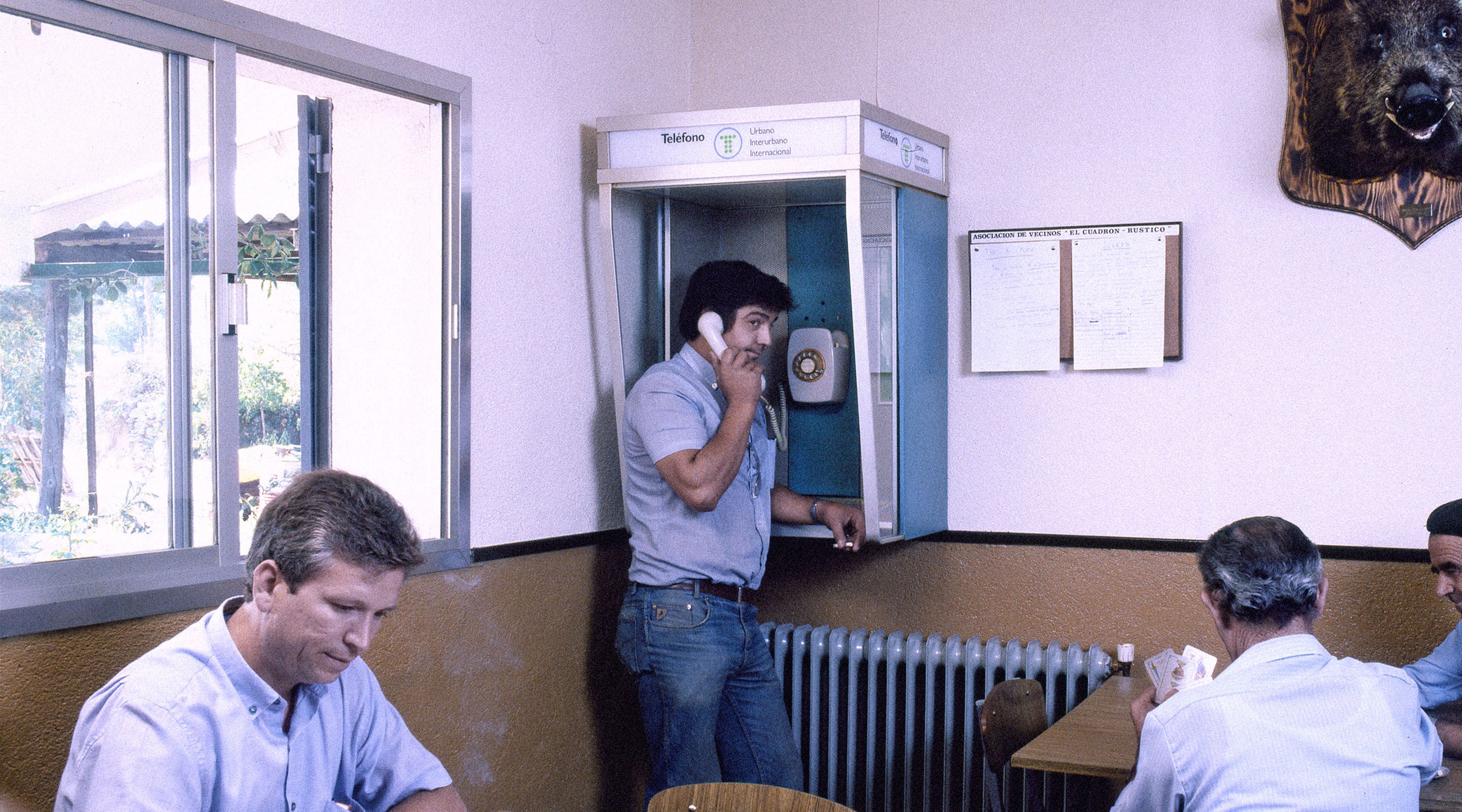
1991
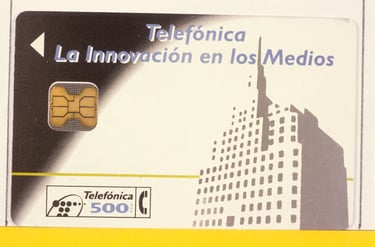
15 million lines and a Company focused as never before on customer satisfaction. Customer sovereignty prevails at Telefónica and the quality of customer care and service is now part of its third contract with the Spanish Government.
We sign the third contract with the State
01
One day after Christmas, on 26 December 1991, Telefónica's chairman, Cándido Velázquez-Gaztelu, and the then Minister of Public Works, Transport and the Environment, Josep Borrell, sign Telefónica's third contract with the state. It brings a significant change: quality of service becomes a legally binding commitment and Telefónica undertakes to maintain predetermined levels of quality, with penalties in the event of non-compliance. Quality, a telephone commitment over time, becomes even more essential, as the chairman explains at the Shareholders' Meeting: "Telefónica has gone through the hardest and most difficult stage of a long career (...). Our business is about selling quality, and without quality there is no business".
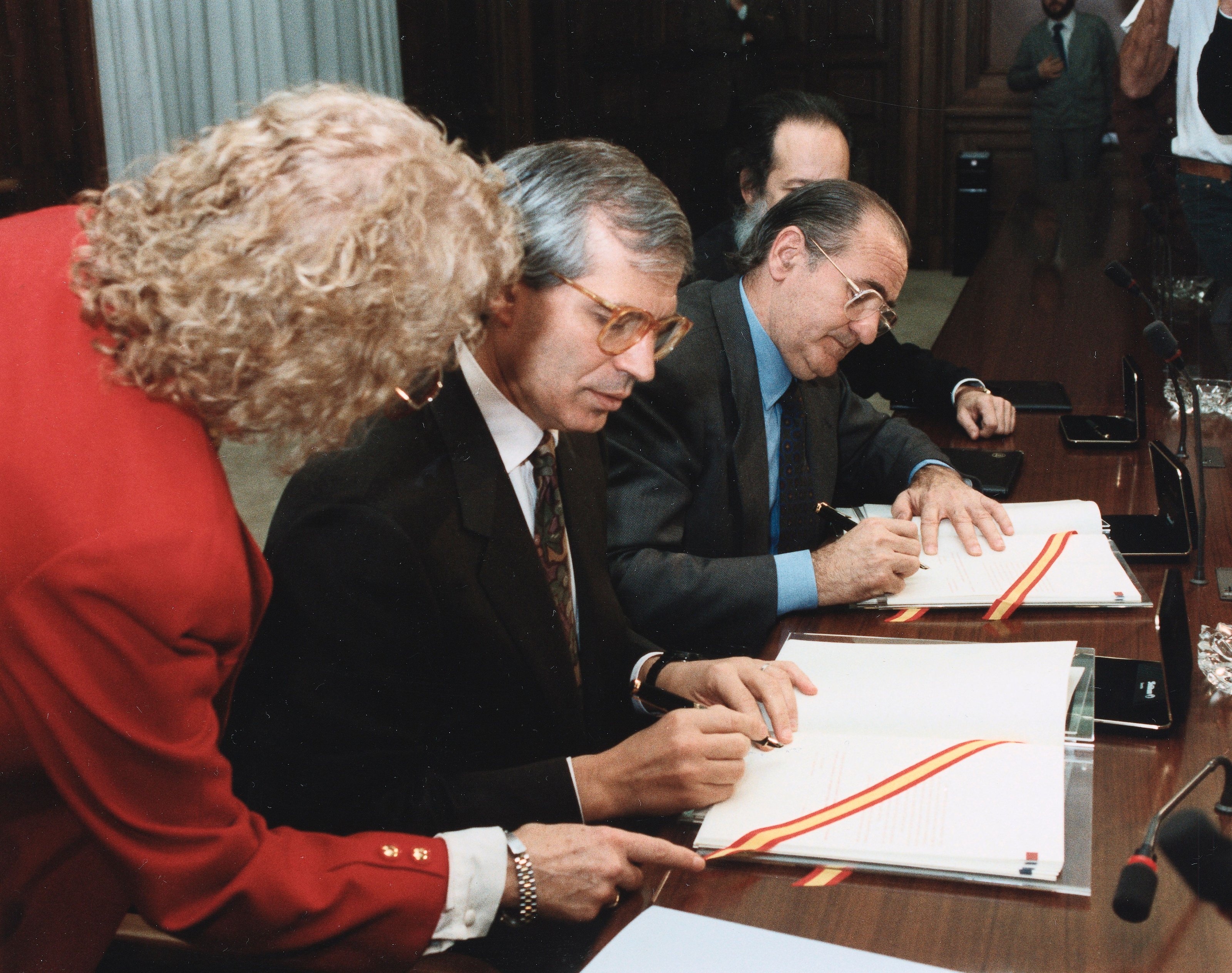
“Customer sovereignty”
02
In order to be able to offer the quality to which we are committed, customer orientation is necessary, as stated in the 1991 annual report: "In order to adapt to the new competitive environment, Telefónica has been evolving its management model with the aim of making the customer the centre of all its processes". We had moved from dispatching telephone lines to focusing on gaining the customer's trust, and to do so, we went a step further and adapted our internal structure. Everyone who had any relationship with the customer, even if they were from an operational area (head offices or switchboards, etc.) came under the responsibility of the commercial or technical assistance areas. To make this shift clearly visible, the company's mission was subordinated to what was called "customer sovereignty". And in this line, Telefónica also learned in those years to make better advertising and great commercial offers.
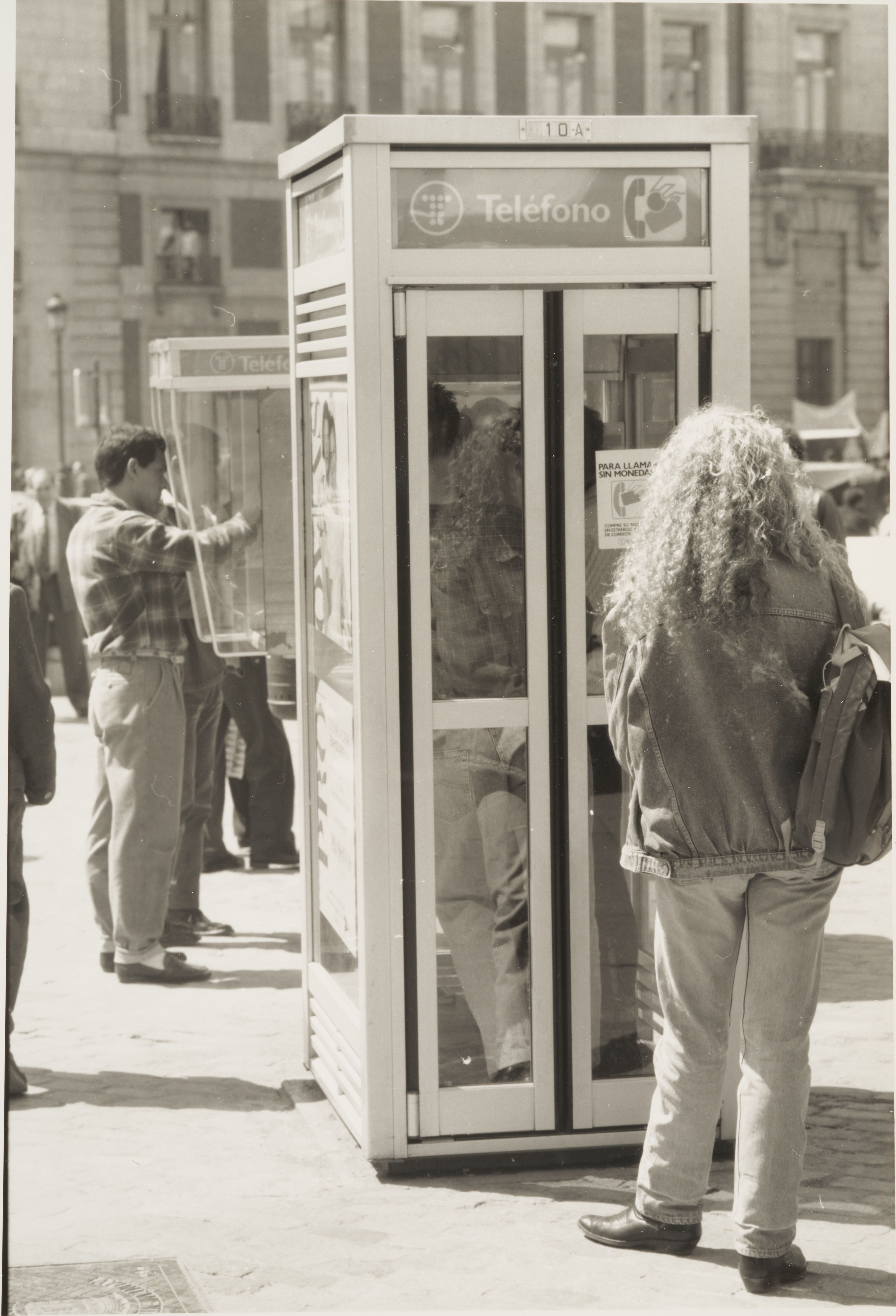
We crossed the 15 million line barrier
03
The investment effort of these years continues and in 1991 we manage to surpass a round figure: 15 million lines installed in Spain. In less than four years we went from 10 million to 15 million, which caused the waiting list to fall drastically.

Good news beyond Spain
04
Expansion in Latin America kept pace with privatisation bids for telecommunications companies. In 1991 the VenWorld consortium, in which Telefónica participated through Telefónica Internacional, receives the good news of being awarded the privatisation of the state-owned operator CANTV1 in Venezuela (it acquired 40% of the shares). Other incursions were to follow in the next two years: entry into Puerto Rico (TLD) and the award of a mobile licence in Romania and a paging licence in Portugal.
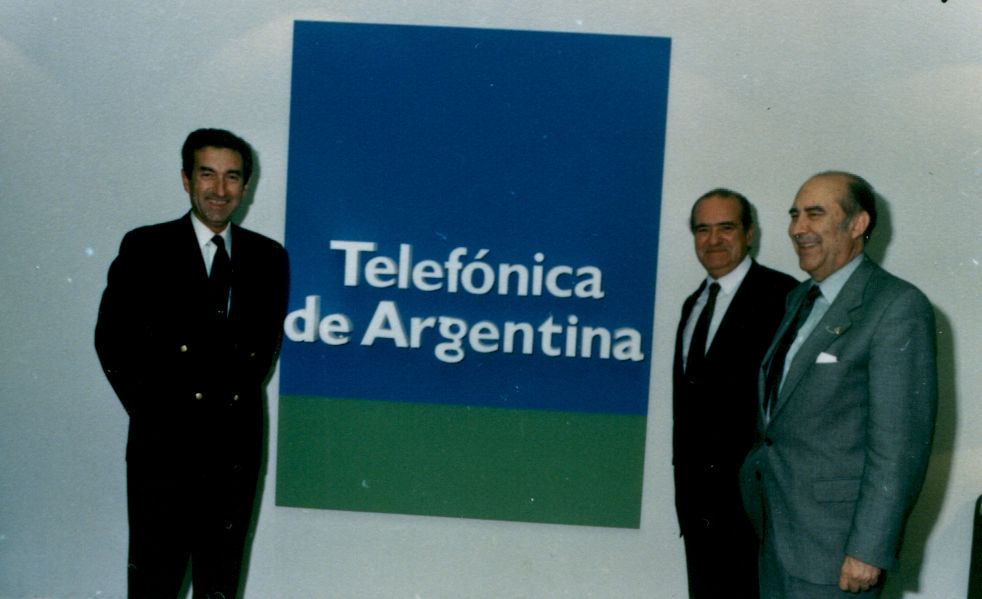
Los servicios suplementarios de Telefónica
You must accept all cookies to see this content
Do you have doubts about what happened?
Ask Aura